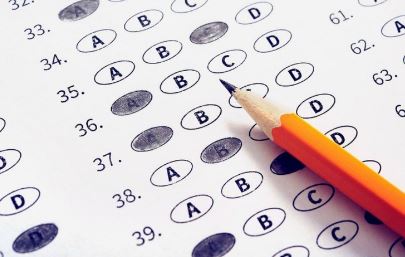By Matt Larriva
Matt Larriva is the founder of Powerful Prep and an expert in test-prep, test-taking, and the pre-college process. Matt was named an “elite super tutor” by the BBC, and works locally and globally with students who are seeking the best in test prep. Matt completed his undergraduate degree at The Wharton School, University of Pennsylvania, and has a Masters in Applied Statistics from UCLA. He has published three books on test prep.
Powerful Prep is a leading concierge tutoring firm dedicated to transparency, massive point gains and customized curriculum. Powerful Prep only hires Ivy League graduates and has the highest reviews of any college program in Southern California. The program has been featured multiple times on CBS as the premier test prep program in the LA area.
Unceremoniously and without prior notice, The College Board (makers of the SAT) have discontinued the SAT Subject Tests and the optional Essay portion of the SAT.
The Subject Tests—not to be confused with the SAT Test—are one-hour exams focused on a Subject of the test-taker’s choosing. Topics ranged from advanced math to languages and were seen as a way for students to demonstrate their expertise in subject matter not covered on the SAT.
The College Board cited its intent to “reduce demands on students” as the primary driver of the Subject Tests requirement. The organization noted that students registered to take the Subject Tests can expect their registrations to be canceled and their fees to be refunded. International students will have two more occasions to take the tests.
The decision comes in a time of decreased emphasis on the SAT and ACT in general, as many colleges had shifted to a testing-optional policy prior to and during the pandemic.
The Subject Tests gained popularity in the early 2000s and were largely required tests for those targeting selective universities. Students were expected to take an advanced English test, an advanced math test and one Subject Test of their choosing. Since their height of popularity, their frequency has declined consistently, with even the most elite institutions making them optional starting in 2015. Since then, the primary takers of these tests have been international students– for whom the tests were required to demonstrate English prowess– and students looking to study advanced STEM fields at elite universities.
Those familiar with the industry were not surprised by the decision, noting that recent years have seen a wave of student-friendly policies from both testing organizations: the SAT now offers free online test prep resources, and last year the ACT announced that students would be able to retake single sections of their (four-part) test.
Although students may breathe a sigh of relief at one fewer exam, the College Board notes that it will continue to offer Advanced Placement tests, which largely serve the same purpose as the SAT Subject Tests. Skeptics argue the decision is an attempt to stem the tide of anti-testing policies and practices.
While the College Board is a not-for-profit organization, it is struggling to maintain its foothold in the American education system, as the UC system announced it will not consider SAT scores after 2024, and as organizations like FairTest.org continue to oppose standardized testing. Simplifying their offerings and decreasing their avenues for fee collections may cast The College Board in a more favorable light.
Whether or not the decrease in potential testing benefits students remains to be seen. Skeptics argue that while the SAT Subject Tests were available to all students regardless of high school, and Advanced Placement tests are only available to students whose high schools offer Advanced Placement curriculum—generally wealthier districts. The elimination of a means of differentiation may come as a blow to some students who do not have access to the Advanced Placement curriculum, as they try to compete for university spots against those who come from backgrounds with higher optionality.
Matt Larriva is the founder of Powerful Prep and an expert in test-prep, test-taking, and the pre-college process. Matt was named an “elite super tutor” by the BBC, and works locally and globally with students who are seeking the best in test prep. Matt completed his undergraduate degree at The Wharton School, University of Pennsylvania, and has a Masters in Applied Statistics from UCLA. He has published three books on test prep.
Powerful Prep is a leading concierge tutoring firm dedicated to transparency, massive point gains and customized curriculum. Powerful Prep only hires Ivy League graduates and has the highest reviews of any college program in Southern California. The program has been featured multiple times on CBS as the premier test prep program in the LA area.
The views and opinions expressed in this commentary are those of the author and do not necessarily reflect the official position of Citizens Journal
Get Citizensjournal.us Headlines free SUBSCRIPTION. Keep us publishing – DONATE





